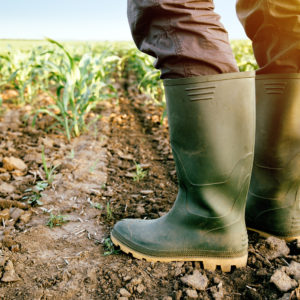Farmers in 2016 took a big chance by supporting Donald Trump for president. They were reluctant at first, giving him a second-place finish in the farm-heavy Iowa caucuses. However, they soon came around and overwhelmingly voted for him in the general election.
Let me explain that initial reluctance, as someone who both knows farmers and worked for the Trump campaign. Many farms depend on (overwhelmingly legal) seasonal migrant labor from Mexico and Latin America to help harvest their crops and fully 20 percent of farm profits depend on sales to international markets.
Here was a candidate who was promising to crack down on illegal immigration, which could have knock-on effects on the supply of legal farm workers. Candidate Trump also threatened to start trade wars. He wanted to do this to improve how U.S. goods are treated in many foreign markets, by making it harder for goods from those countries to enter our markets. But in trade wars, as in actual wars, there are casualties. Groups like Farmers for Free Trade recognize this, and as highlighted in their recent ad campaign, the agriculture sector is getting mowed down in this trade war.
Farmers knew this, but they also knew something important about farming and trade: America is a breadbasket. The soils here are fertile and plentiful. About 25 percent of our landmass is arable. China, a nation of about the same size, can only make use of about 10 percent of its landmass to grow crops.
This means that we can easily grow enough to feed enough Americans and then some. That surplus gets exported and becomes a major part of America’s trade with other countries. Farmers knew that if you take away farming exports, then the trade deficits that Trump complains about would only get much, much worse.
So I would implore President Trump to consider some of the effects that his steel and aluminum tariffs are having on farmers. Many nations have met his tariffs with retaliatory tariffs on American goods. Of course, one of the fattest targets there is American produce. How do you like them high-priced apples?
These tariffs have put in jeopardy the 20 percent of farm income that comes through international trade. It has done so, first, by increasing the cost of getting goods to market, and, second, by creating instability in a lot of markets that farmers depend upon to deal with risk, including futures markets.
And this has happened at the same time as Trump’s highly publicized immigration enforcement reforms have made it more difficult for farms to get legal migrant workers to come help bring the crops in. There’s not a lot of time here. Many crops are already rotting in the fields without free access to markets to sell them in or laborers to prepare them for sale.
Altogether, it’s a dangerous mix not just for farmers but for much of rural America. Farms spend money on vehicles, on equipment, on supplies and on laborers on a fairly massive scale. If you threaten 20 percent of the farmer’s bottom line, you are practically rooting for further hollowing out small cities and towns.
That isn’t the America that Trump wants. He wants an America that is great because of the success of all hard-working Americans, and you’d be hard pressed to find harder workers than American farmers. He should look at some of the side effects his policies are having on them and reconsider.

